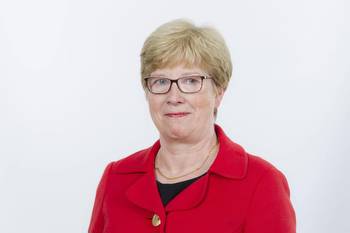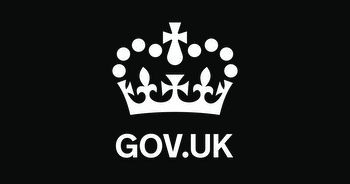UK unveils long-awaited White Paper on gambling
Gaming News
27 April 2023
(PRESS RELEASE) -- Millions of people enjoy gambling every year - whether that be putting money on a horse, playing at a casino, or a bet on the football - and much of this is now done through smartphones. Technology has transformed the industry and people can bet 24 hours a day through ‘mobile virtual casinos’ in their pockets.Most people play without issue, but there are too many cases of addiction, catastrophic financial loss and, in some tragic cases, suicide. For example, one player was allowed to lose £70,000 over a 10-hour period, while one customer was allowed to place a £100,000 bet immediately, even though he had a £70,000 credit limit.Estimates suggest that there are approximately 300,000 problem gamblers in the UK – and problem gambling rates are higher for players in online casino games than those playing in bingo halls, casinos and pubs.Last month, the Gambling Commission fined William Hill over £19 million for failures including allowing a customer to spend £23,000 in just 20 minutes.Betting companies are already required to prevent harm, but there have been repeated instances where they have allowed losses which the majority of the population could never afford. The measures set out today will shield players in the grip of addiction from harm and hold gambling firms to account when they fail in their responsibility. They include:- A statutory gambling operator levy to ensure that operators help fund treatment services and research, including through the NHS. ?Currently the size of the contribution is not mandated and not all betting companies pay their fair share - some have paid as little as £1.- New stake limits for online slots games that will be between £2 and £15 per spin. We will also consult on measures to give greater protections for 18–24 year olds who the evidence shows are at heightened risk of harm.- Frictionless player protection checks to protect those most at risk of harm before unaffordable or harmful losses are incurred.- Extra powers for the Gambling Commission to enable it to tackle black market operators through court orders and work with internet service providers (ISPs) to take down and block illegal gambling sites.- Rules to prevent bonus offers harming vulnerable people - for example, looking at how free bets or spins are constructed and targeted to stop them being harmful.- Closing loopholes to make sure under-18s cannot gamble either online or via cash fruit machines, and includes bringing football pools betting in line with National Lottery play for over-18s only.- A new industry ombudsman to deal with disputes and rule on redress where a customer suffers losses due to an operator failing in their player protection duties.- A review of the current horserace betting levy to make certain racing continues to thrive.These are the most comprehensive reforms to the gambling sector since the Gambling Act was introduced in 2005, and delivers on the 2019 manifesto commitment to review this act.Culture Secretary Lucy Frazer said: "We live in an age where people have a virtual mobile casino in their pockets. It has made gambling easier, quicker and often more fun, but when things go wrong it can see people lose thousands of pounds in a few swipes of the screen.""So we are stepping in to update the law for those most at risk of harm with a new levy on gambling operators to pay for treatment and education, player protection checks and new online slots stake limits.""This will strengthen the safety net and help deliver our long-term plan to help build stronger communities while allowing millions of people to continue to play safely."Gambling Minister Stuart Andrew said: "Technology has completely transformed how people bet. Everyone has the freedom to enjoy a flutter on the horses or football through their phones, anytime, anywhere - and most people do so without any issues.""But for some people the availability of 24/7 online betting has compounded or created problem gambling, which can lead to life-changing financial loss and in the most tragic cases suicide.""The legislation covering the gambling sector was written in 2005. It needs updating to reflect how we live today. The measures we are announcing will protect at-risk players, while allowing the millions who bet regularly to do so unhindered."Chief Executive of the Gambling Commission, Andrew Rhodes, said: "The review is a once-in-a-generation opportunity to deliver positive change for gambling in Great Britain and for all people impacted by it. Everyone at the Commission welcomes today’s publication of the White Paper and is determined to work with government and partners to make these changes a reality.""Given the correct powers and resources, the Gambling Commission can continue to make gambling safer, fairer and crime free. This White Paper is a coherent package of proposals which we believe can significantly support and protect consumers, and improve overall standards in the industry.""As the detailed implementation of the review now begins, we will also be reiterating to all operators that the Commission will strongly maintain its focus on consumer protection and compliance."Minister for Public Health, Neil O’Brien said: "Without the right support in place gambling can easily become harmful – especially for at-risk players – leading to devastating impacts on people’s savings, relationships and health.""Today’s white paper is a huge step towards protecting people from the damaging impacts of gambling.""A statutory levy will help problem gamblers access the right care at the right time, complementing our commitment to provide NHS gambling addiction treatment clinics in every region across the country."Today’s White Paper and proposals follow a call for evidence and are based on nearly 16,000 written submissions sent to the Department for Culture, Media and Sport (DCMS) during the process.They build on the government’s recent work with the Gambling Commission and others to ban the use of credit cards in gambling, introduce tighter age verification checks for betting online and cutting the maximum stake on fixed-odds betting terminals to £2 per spin.The white paper follows the Premier League’s voluntary decision to ban gambling advertising from the front of clubs’ shirts from the end of the 2025/2026 season, and the White Paper includes proposals for all major sports governing bodies to sign up to a cross-sport Code of Practice on gambling sponsorship. It will be designed to improve standards where gambling sponsorship is prevalent in sport similar to what is in place in the alcohol industry.The white paper will support the ‘land-based’ gambling sector including casinos, arcades and bingo halls, while maintaining safeguards to protect vulnerable groups. Bingo halls, seaside arcades and casinos create employment, generate tourism and provide entertainment. Outdated and overly restrictive rules on gaming machines will be reformed so casinos and arcades can have more machines. We will consult on the protections needed for gaming machines to be able to accept cashless payments directly.
Statutory gambling operator levy
The first statutory gambling operator levy will replace the current voluntary levy which is not fit for purpose. As it stands not all betting companies pay their fair share and some have paid as little as £1. The NHS and many researchers do not take funds from the voluntary levy due to their concerns over the source of funding.A new levy will be paid by gambling companies. Its proceeds will be ring-fenced for funding for research, education and treatment, including through the NHS.The levy will be collected by the Gambling Commission and spending will be approved by the government. The rate will be subject to further consultation, which will take into account factors such as business size, operating costs and problem gambling rates. The government’s priority is to ensure there is sufficient long-term funding for high-quality research and treatment of gambling harm and addiction.New online stake limit
A new stake limit for online slots will be introduced with the default maximum stake of between £2 and £15 per spin, subject to consultation. The measure will help prevent runaway and life-changing losses and level the playing field between the online and land-based sectors. As it stands there is no limit on bets for online slots whereas in-person slot machines in pubs, arcades, bookmakers have a limit of £2 and casinos have limits of up to £5.Public Health England research has shown younger adults can be particularly vulnerable to gambling harms, and with a problem gambling rate of 8.5 per cent for online slots, casinos and bingo, the government will launch a consultation on options for specific protections for under 25s, including a lower stake limit or other controls.Player protection checks
In a move aimed at supporting those who may be suffering harm or in the grip of addiction, gambling operators will now be required to do more to protect customers.Betting companies will be required to conduct seamless player protection checks on the highest spending gamblers to check they’re not incurring harmful losses. These checks will happen instantaneously, and will not impact gameplay, unless there are signs of financial harm where people may have declared bankruptcy, or are racking up debts to fund their gambling.The checks will be targeted to where there is the most risk of harm. They are not about checking up on people having a flutter on the football or placing the odd bet on horse racing.Around eight in ten players will never undergo checks. Checks will happen in the background against information already available online, so those who are checked will not notice.Only about three percent of the highest spending accounts will have more detailed checks, similar to those carried out when people buy products through online credit agencies or sign up to some mobile phone contracts.New powers for the Gambling Commission
New powers will be given to the Gambling Commission to tackle and block unlicensed black market gambling firms from operating in the United Kingdom. It will do so through court orders and work with ISPs.Illegal operators often try to subvert the system, including on player protection requirements, and this move will further strengthen the regulatory environment protecting those most at risk of harm.The White Paper proposes reforming the fee structure for the Gambling Commission to give it greater flexibility to respond to any emerging risks and challenges posed by the industry. While the Commission continues to take strong action against operators who break the rules, cases with devastating financial harm are still occurring, and in the worst cases lives are being lost as a result of gambling harm and addiction.Restricting bonus offers
The call for evidence showed that while millions of people enjoy an occasional bet every year without issue, particular groups such as those suffering addiction and harm, are at greater risk from certain aggressive advertising practices.Bonus offers, such as free bets or spins, can drive harmful behaviour and trigger people to spend more than they intended. The Gambling Commission will take a closer look at how bonuses are constructed and targeted to prevent them being used in harmful ways and its work will inform new rules to stop dangerous practices.Horseracing levy
The knock-on impact of the gambling White Paper on the horseracing industry will be minimal, but there will be a review into the current horserace betting levy to make certain racing continues to be appropriately funded for the future.Other measuresIn addition, the government’s white paper also today confirms it will:- Remove loopholes to prevent under-18s from accessing any form of online gambling, cash prize fruit machines or widely accessible scratchcards;- Review the fees which local authorities can charge for premise licenses and create new powers for local leaders to conduct impact assessments when considering new applications.- Review of online game design rules to look at limiting speed of play and other characteristics which exacerbate risks.



































